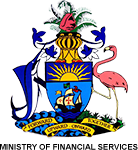The Bahamas to make fundamental changes to ensure delisting
 The Bahamas must undergo changes to its legal and regulatory framework, and implement additional accounting and reporting obligations in order to be removed from the European Union’s (EU) list of uncooperative countries, Minister of Financial Services, Trade and Industry and Immigration Brent Symonette said yesterday, adding that the legislation to make those things happen will be debated by Parliament soon.
The Bahamas must undergo changes to its legal and regulatory framework, and implement additional accounting and reporting obligations in order to be removed from the European Union’s (EU) list of uncooperative countries, Minister of Financial Services, Trade and Industry and Immigration Brent Symonette said yesterday, adding that the legislation to make those things happen will be debated by Parliament soon.
Brent Symonette, who made those remarks in the House of Assembly yesterday during his interim budget report, reminded the House members that the government had begun working on these measures to counter any kind of blacklisting by the EU. However, the government had not responded correctly to the EU’s request for commitment to enact those changes by the end of the year and The Bahamas was thus blacklisted.
The government has produced a comprehensive timetable
“We began the necessary preparations to enact some of these measures having regard to the Code of Conduct Group requirements well before the listing of The Bahamas as non-cooperative,” Symonette said.
“To ensure that this process will be completed by the end of 2018, the government has produced a comprehensive timetable that includes consultation with industry, and the draft legislation which will be debated shortly.
“The timetable is reflected in our most recent correspondence with the Code of Conduct Group, which has been provided to the EU ministers of the member states.”
The ministry is working to preserve the second pillar of the economy
Symonette said his ministry sees the reversal of the blacklisting as a top priority and lamented that the industry remains under a constant threat by ever-expanding international regulatory standards spawned in part by illegal activity.
“My ministry is working diligently to ensure that this pillar of our economy remains strong for the preservation of the Bahamian middle class and sustainable economic growth,” he said.
“Mr. Speaker, there was a time when the financial activities occurring in one country were kept confidential or private. That has all but disappeared, because the financial activity created in one country, can cause a ripple effect in other countries when used for illicit or illegal activities.
“In an effort to crack down on these activities, there have been a number of international regulatory initiatives advanced by bodies such as the OECD (with the Common Reporting Standard), FATF (40 recommendations plus 9), EU (Criteria), and the Basel Committee (Basel Initiatives for banking supervision) just to name a few.”
The Bahamas has never refused to cooperate with the EU
Symonette said The Bahamas’ December signing of the Organization for Economic Cooperation and Development’s Convention on Mutual Administrative Assistance in Tax Matters, and the Multilateral Competent Authority Agreement, as well as the country becoming a member of the Inclusive Framework on Base Erosion and Profit Shifting (BEPS), should have sent a clear message to the EU and others that The Bahamas is indeed a cooperative jurisdiction. However, the blacklisting sends a different message to the world.
“The Bahamas has never refused to cooperate or engage with the EU,” said Symonette.
“In fact, we have been actively engaged and consistently cooperating with their requests and concerns.”
“Mr. Speaker, notwithstanding the positive work already being undertaken, we have made a high political level commitment to discuss and address the concerns of the Code of Conduct Group by the end of 2018 and to ensure The Bahamas is delisted as soon as possible.”
Source: Nassau Guardian


